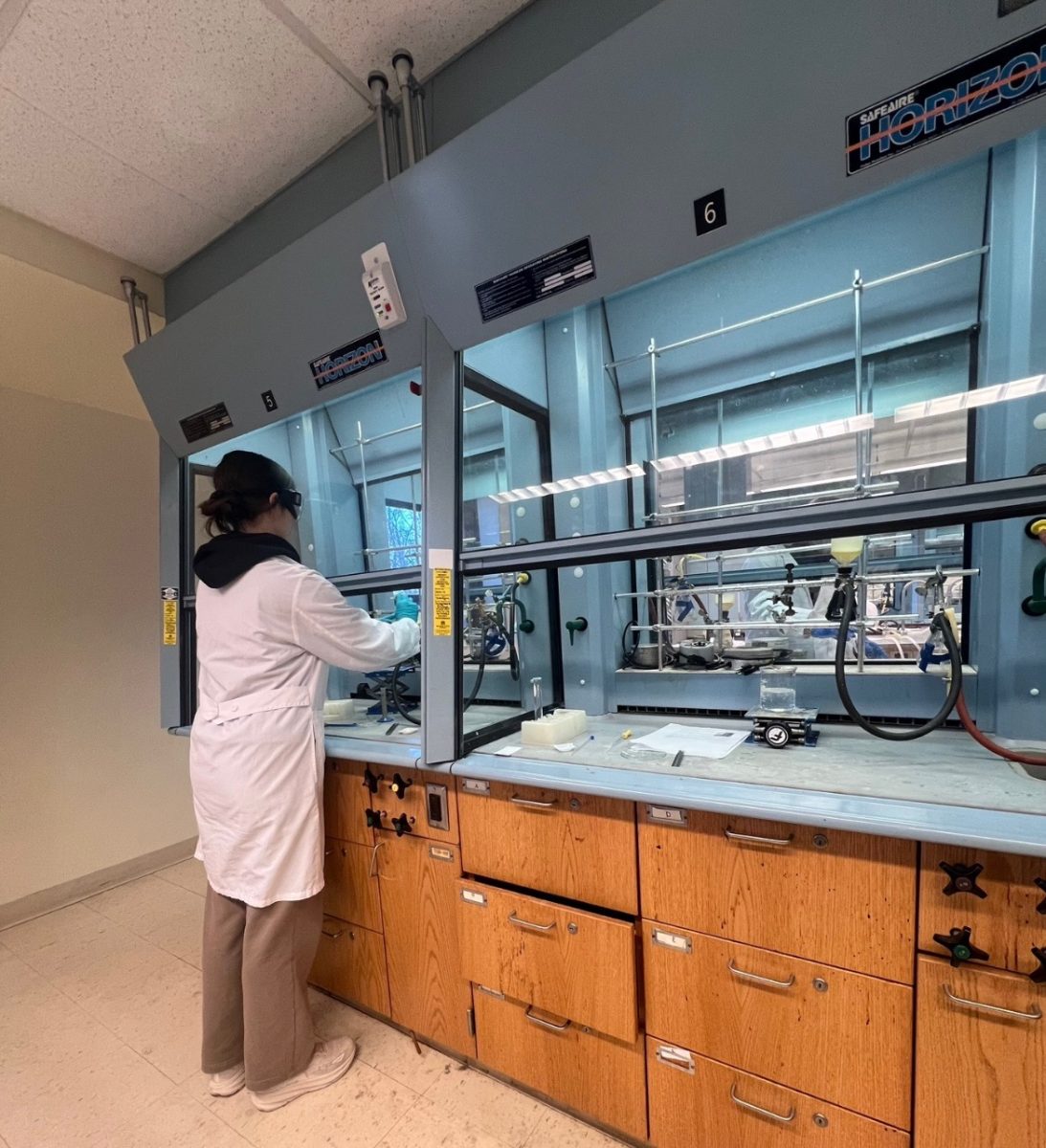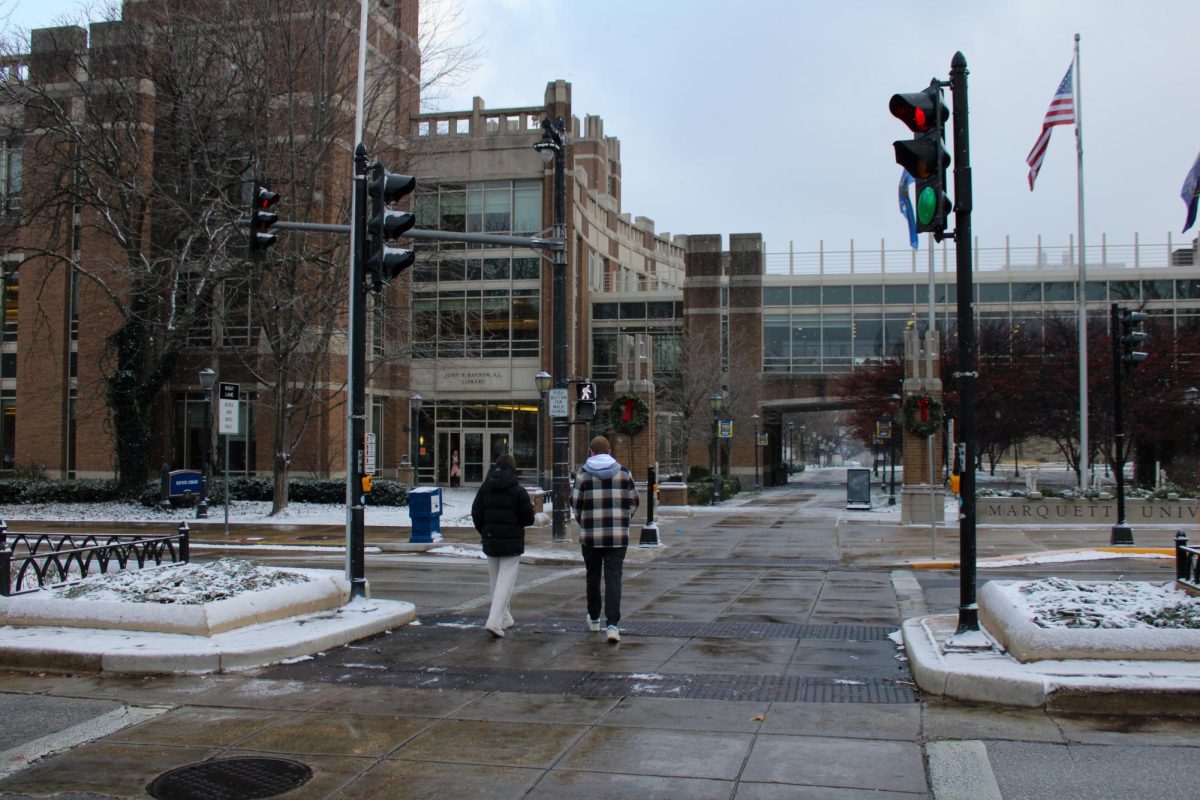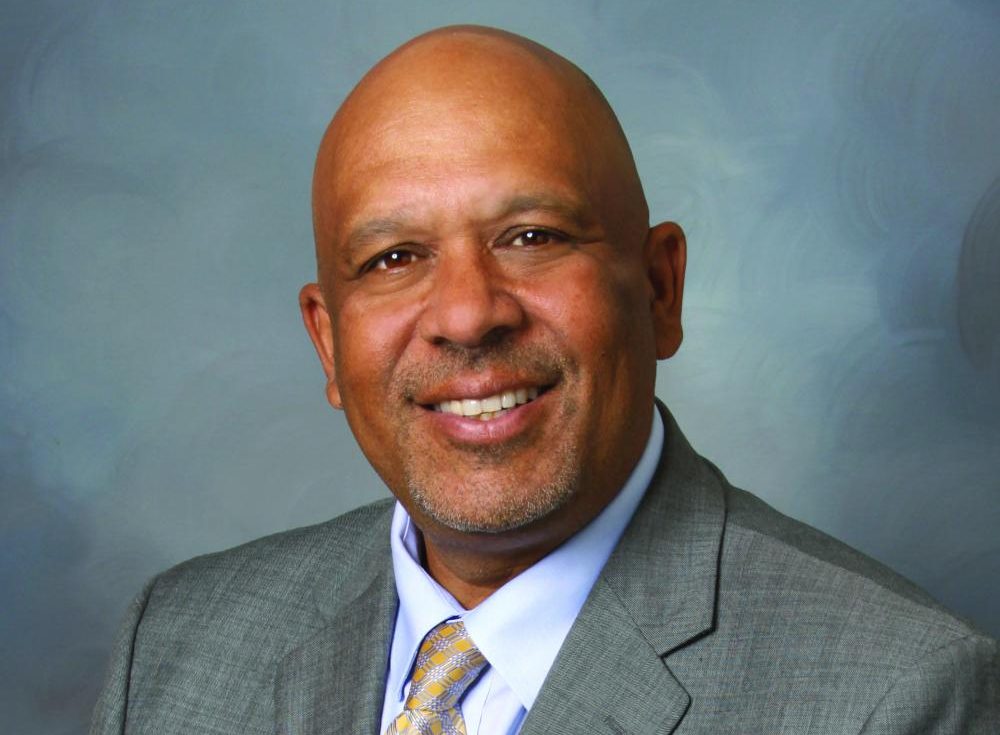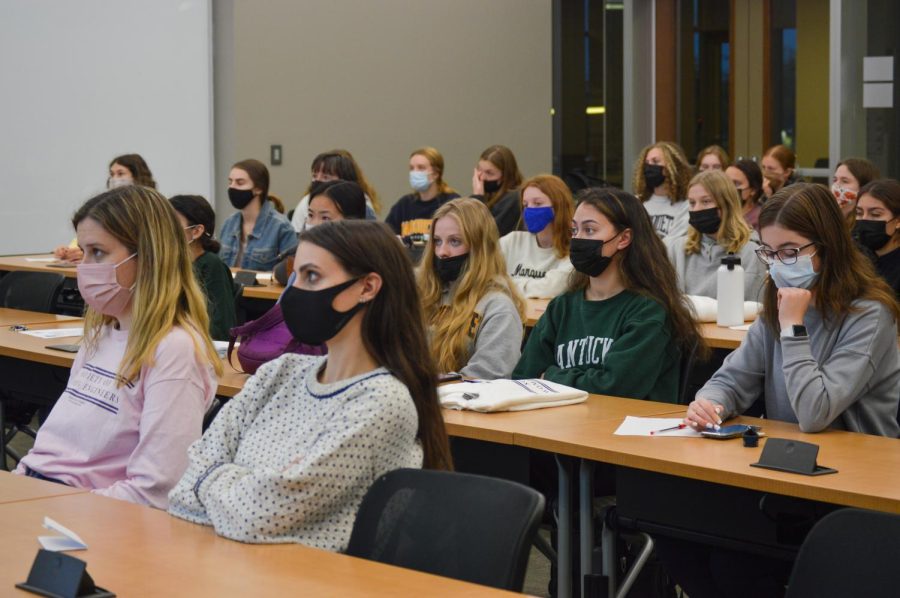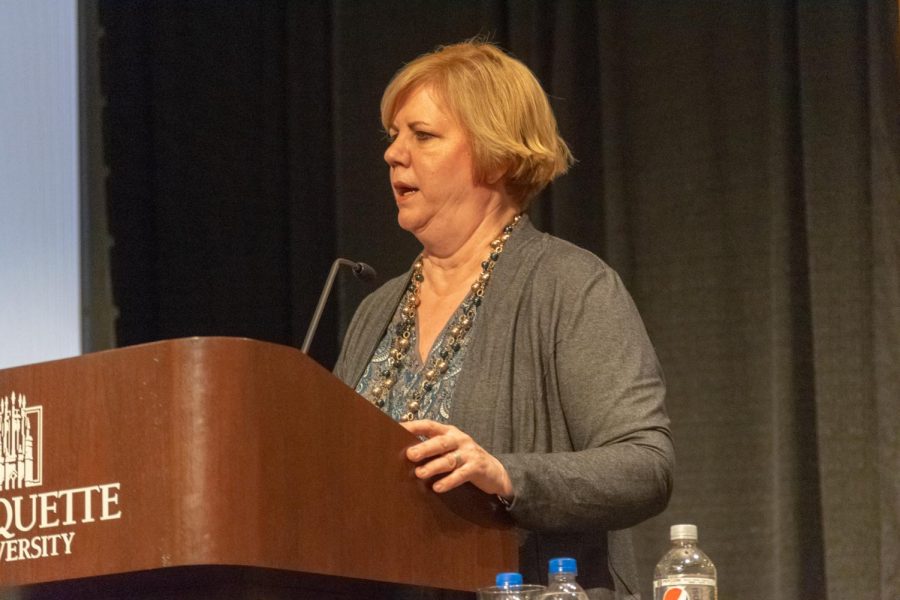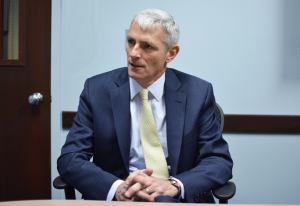
University President Michael Lovell talks with the Marquette Tribune during an exclusive interview in March.
With newly-selected University President Michael Lovell’s strong engineering background, it doesn’t come as a surprise that he’s expressed a lot of interest building Marquette’s education in science, technology, engineering and math — better known collectively as STEM.
But considering Lovell’s connections with groups like the Greater Milwaukee Committee, his interest in STEM has implications beyond the Marquette boundaries.
“There’s 1,300 engineering firms right here in Milwaukee,” Lovell said in an interview. “When you think about the impact those students can have on the city and the state, it’s something we could be known for as a university.”
Although Lovell said the liberal arts aspect of Marquette’s Jesuit curriculum will remain a priority at the university, his commitment to STEM is heightened by his recent appointment as co-chair of the GMC’s Innovation in Milwaukee initiative, or MiKE, which stresses partnering technological talent with the resources of city businesses.
Lovell will be leading MiKE alongside Todd Teske, president and CEO of Briggs and Stratton Corp., and Jonas Prising, CEO of ManpowerGroup.
“When students around the country are thinking about going to a Jesuit university but want that STEM education, I want Marquette to be the first place that they think of,” Lovell said.
Advocates for greater STEM in Wisconsin argue the education makes students more qualified to fill open positions and presents them as more appealing job applicants, because the program’s courses better prepare students to think critically and analyze information than just a normal college engineering course.
“If you have a STEM degree, the likelihood of a better means of life is higher, because STEM jobs on average provide a better rate of pay and employment,” said Rich Merkel, executive director of STEM Forward, a group that advocates for greater resources for technology education.
It also means more jobs. In a study done by STEM Connector, researchers found that there are currently 600,000 available jobs in STEM fields, with 1.7 million new jobs to be created by 2015.
To build up the infrastructure for Marquette students to take on these jobs, Mark Federle, associate dean of the College of Engineering and member of STEM Forward, said Marquette would need additional faculty members and laboratory spaces to accommodate the surge in students interested in the school’s programs.
He also stressed that the commitment would have to go beyond just the university.
“We need to get into junior highs and high schools to talk about preparation for becoming an engineer because if you didn’t pick the right seventh grade math, joining the STEM field in college becomes much more problematic because you don’t have the fundamental math skills,” Federle said.
Overall, the goal would be to provide enough resources for students prior to and at Marquette to render graduate school unnecessary.
The state of Wisconsin just recently started to invest in STEM, with the Department of Public Instruction distributing $250,000 this summer to school districts that applied for the funding.
That allocation from the state budget, however, falls short of the total $1.2 million requested from schools.


